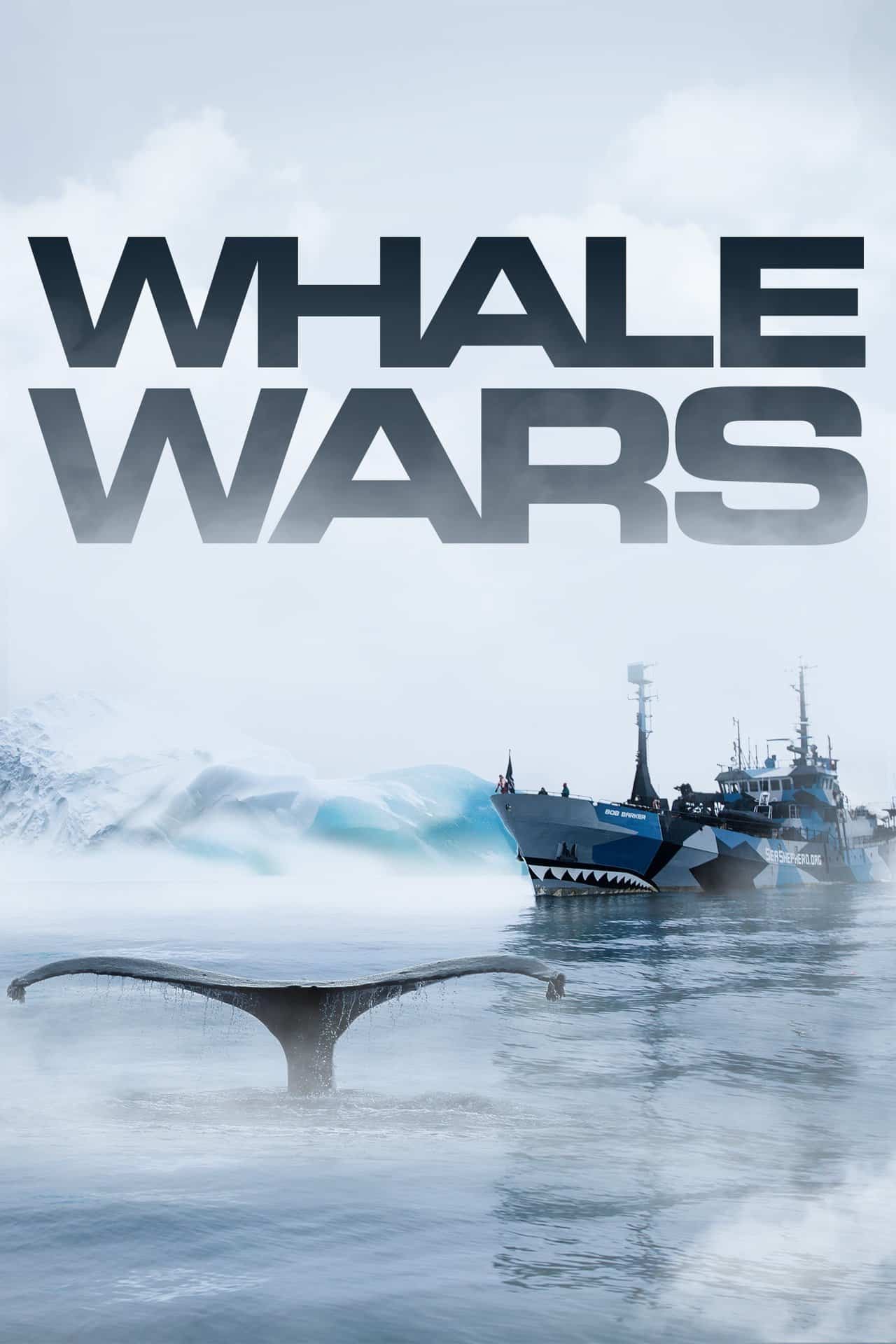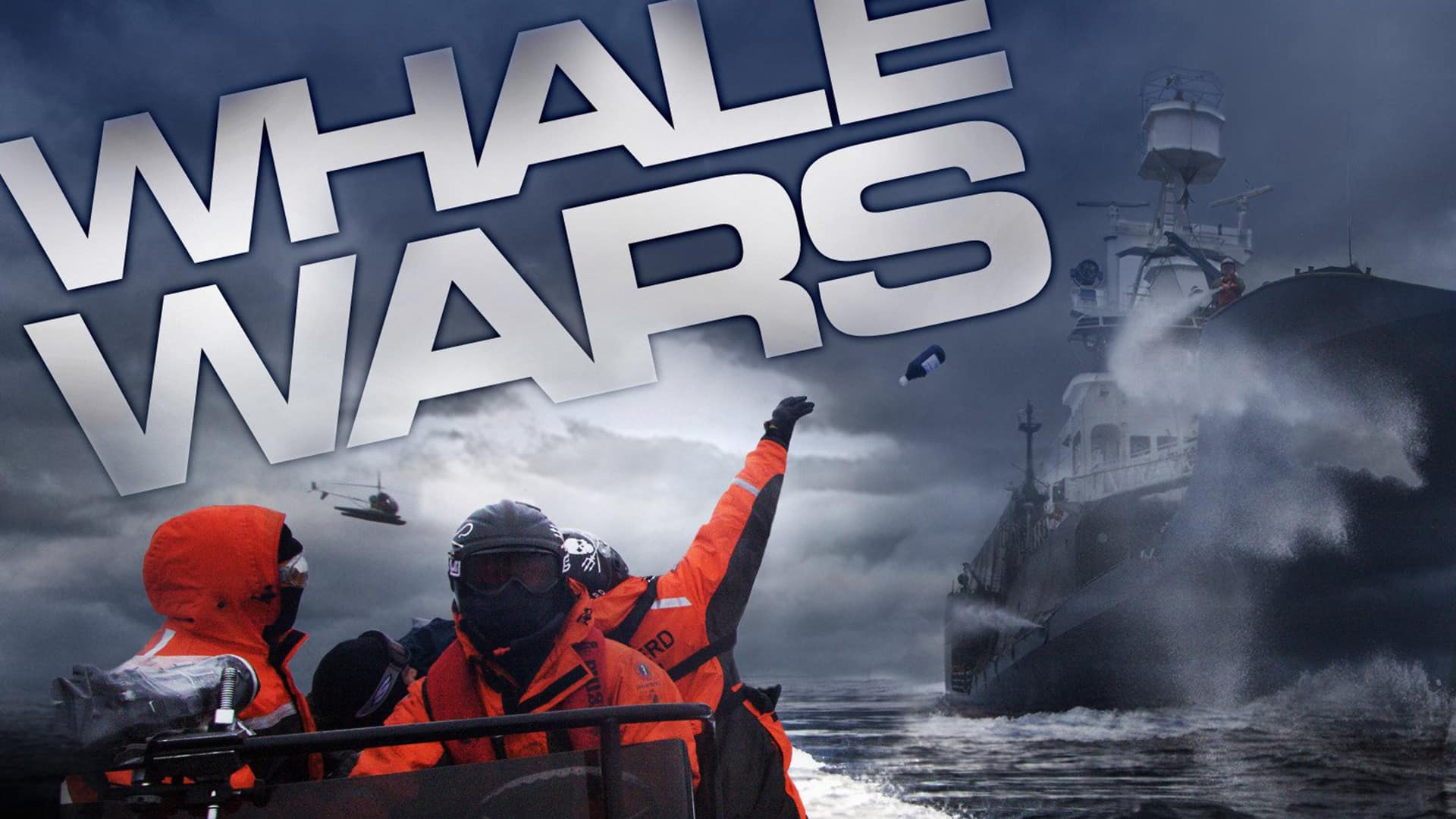Despite how vast the ocean of reality TV is, it’s tough to find a show which captures the struggles of people fighting for the more-than-noble cause of saving whales. In 2008 that was made possible through Animal Planet’s “Whale Wars”, but regardless of the good intentions behind the show, it couldn’t escape the criticism and scandals which followed its premiere.
International legal problems, issues between the staff, and the sinking of a boat are only a couple of the most relevant trials and tribulations faced by the Sea Shepherd Conservation Society in the show, but were those enough to cancel the series?

Stay here to know all the hardships which resulted in “Whale Wars” cancellation, including the lawsuits, the accidents and so much more!
Why Was The Series Cancelled?
While “Whale Wars” cancellation took place after the show’s seventh season aired in 2015, problems for the show started several years before. As it happened, the show had kept a stable format of several episodes per season, but the sixth season saw a considerable downsize to only one two-hour-long special episode, aired in late 2013.
In an interview with The Wire, the then President of Animal Planet Marjorie Kaplan admitted that “Whale Wars” changes in format were caused by budget limitations, added to the legal problems faced by Paul Watson at the time, made the filming and production processes complex. That being said, she also insisted on the importance of “Whale Wars” for the network’s brand and identity.
The next “Whale Wars”’s season aired in 2015 and consisted of three two-hour-long episodes in documentary format. However, Paul Watson was unable to appear in this season as the legal challenges he was facing at the time forced him to leave the Sea Shepherd Conservation Society head seat. He was replaced by Peter Hammarstedt as the new Captain of the anti-whaling organization’s fleet, but given how many legal and budget problems were amounting to keeping the series on, the seventh was also the last “Whale Wars” season to air.
Filming Difficulties
There were several reasons leading to “Whale Wars”s end, but the main ones were the financial issues limiting the show’s filming and production processes. Despite keeping high audience numbers from its premiere and throughout its earliest seasons, “Whale Wars”s budget wasn’t as generous as assumed, becoming an increasing worry season after season, as the-then Animal Planet’s President Marjorie Kaplan told The Wire in 2013.
As a way to cut costs and suffer no consequences from Paul Watson’s legal problems, Animal Planet left the filming in hands of Sea Shepherd’s ship crew, which hired free-lancing staff to make the sixth season possible with a limited budget. Around 2,500 hours of footage resulted from three months of filming and another five months passed before the organization reviewed the material before delivering it to Lizard Trading Company in August. It took the production company over 5,000 hours of work to condense everything into a special aired in December 2013.
The show faced similar challenges in the seventh season, when out of all the material filmed on board the Sea Shepherd ship, only three episodes were produced, according to an interview executive producer Liz Bronstein gave Reality Blurred in 2015.
All in all, making “Whale Wars” a reality was an uphill battle for Sea Shepherd’s staff, Animal Planet, and the production company, thus making the show’s cancellation unsurprising.
https://www.facebook.com/SeaShepherdLuxembourg/posts/pfbid0TSyyqbTwg4tGY5CtaJCKrpiaVG97H7VnkFN3UfLshPSPqizA2KDveQVS2KA3pddol
Paul Watson Injunction
Paul Watson has been the focus of controversy since founding the Sea Shepherd Conservation Society in the 1970s, but the situation reached its lowest point when an international injunction was put against him in 2013.
Throughout the late 2000s to the earliest 2010s, several clashes between the Sea Shepherd ship and Japanese whale fishing vessels and institutions took place in the Antarctic Ocean. It was during the Sea Shepherd’s Operation Zero Tolerance in late 2012 that the situation reached its ugliest point, resulting in an injunction won by Japan’s Institute for Cetacean Research in the US Court of Appeals, which described Paul’s organization as ‘illegal’ and prohibited him, Sea Shepherd along its associated parts, to close within 450 meters of Japanese whaling ships.
Having no option but to comply with the ruling, Paul stepped down from the organization he started. Meanwhile, Animal Planet had no plans of canceling “Whale Wars”, finding a way to renew the show by leaving the filming to Sea Shepherd’s staff. The network’s legal executive Julie Wolf also affirmed that they never contributed financially to the anti-whaling organization’s cause, and didn’t have any say in their activities: ‘They were not to direct, control, re-create, re-shoot anything. It was very, very journalistic, very, very true documentarian’s terms’, she told The Wire.
Even though Animal Planet was well-armed in legal terms against any consequence coming from the injunction, these mounting problems were certainly making “Whale Wars” more complicated to produce.
Boat Lawsuit
One of the most widely media-covered events in the Sea Shepherd Conservation Society’s history was the sinking of the Ady Gil, an eco-friendly super boat which joined the organization in 2009.
"The Whale Wars Continue" commentary by Sea Shepherd's founder, Captain Paul Watson. https://t.co/z66MeuEngt #whaling pic.twitter.com/SOZ3rtmEDp
— Sea Shepherd (@seashepherd) August 28, 2017
In June of that year when the Ady Gil along with the Steve Irwin vessel cruised to the Antarctic Ocean during operation Waltzing Matilda, intending to trail Japanese whaling vessels.
According to reports, in early January 2010, the Ady Gil allegedly sank after a collision with the Shonan Maru 2, a sister ship of the Shonan Maru used to protect the fleet. On its part, Japan’s Institute for Cetacean Research accused the Ady Gil of interfering with its operations by trying to drape ropes around the Shonan Maru 2’s propellers. The case ended with Ady Gil’s operator Pete Bethune’s license revocation, and his five-year-long ban from Japan.
Nonetheless, in 2013 the case resurfaced again when Ady Gil, the owner of the destroyed boat, filed a $5 million lawsuit against Paul for allegedly sinking the ship for publicity purposes. Later in September 2015, an arbitrator determined that the Ady Gil vessel wasn’t in danger of sinking after the 2010 collision, and was ‘wrongfully’ sunk under the anti-whaling organization’s command, effectively awarding Gil with $500,000 in damages and adding another point to Paul Watson’s long list of legal issues during “Whale Wars” run.
Criticism & Backlash
Every TV show receives harsh criticism at some point, yet the backlash towards “Whale Wars” is an inherent consequence of the show’s popularity.
Paul Watson has been criticized not only for his proneness to international legal issues but also by other activist organizations such as Greenpeace, which voted him out of their board in the 1970s for considering that his activism practices didn’t align with their mission. In the 2009 book “Whaling In Japan”, the author Jun Morikawa also affirmed that Sea Shepherd Conservation Society’s controversial actions played a role in widening the approval of whaling among Japan’s general public.
That being said, ever since “Whale Wars” premiered in 2007, it received a warm welcome from the audience and high ratings, but also gained Animal Planet criticism from those who disapprove of Paul Watson’s activist approach. Despite the network’s claims of not contributing to Sea Shepherd Conservation Society’s objectives financially-wise, in an interview with Playboy in 2012, Paul himself admitted the massive reach the TV show gave to its cause by saying ‘the most powerful weapon in the world is the camera’.
Is Sea Shepherd Still Active?
The Sea Shepherd Conservation Society is still active nowadays, but things have changed quite a lot since we last saw it through “Whale Wars”. Despite stepping down as the organization’s head amid the injunction against him in 2013, Paul Watson eventually resumed his activities as director once the waters calmed down.
Nonetheless, Paul Watson’s role in the organization decreased as the years passed. According to The Saturday Paper, in 2014 Paul was removed from the management board, and then in 2019asked to leave the US branch of the organization. The relationship between Paul and Sea Shepherd came to a definite end when he quit the organization for good in 2022, considering he didn’t align with the future goals of the organization.
Following his resignation, Paul formed the Captain Paul Watson Foundation, while the Sea Shepherd announced the continuation of their activities, and the acquisition of new ships.
https://www.instagram.com/p/CqYoR9dOJNo/
All in all, despite all efforts by Animal Planet to continue the show, that wasn’t enough to fight back against all the issues which came with Paul Watson and his now-former organization. However, while the international legal problems, the Ady Gil vessel controversy, and the scandal surrounding the organization’s inner relationships might not be everyone’s cup of tea, there’s no doubt that “Whale Wars” was a game-changing show, even in the vast genre of reality TV.











Leave a Comment